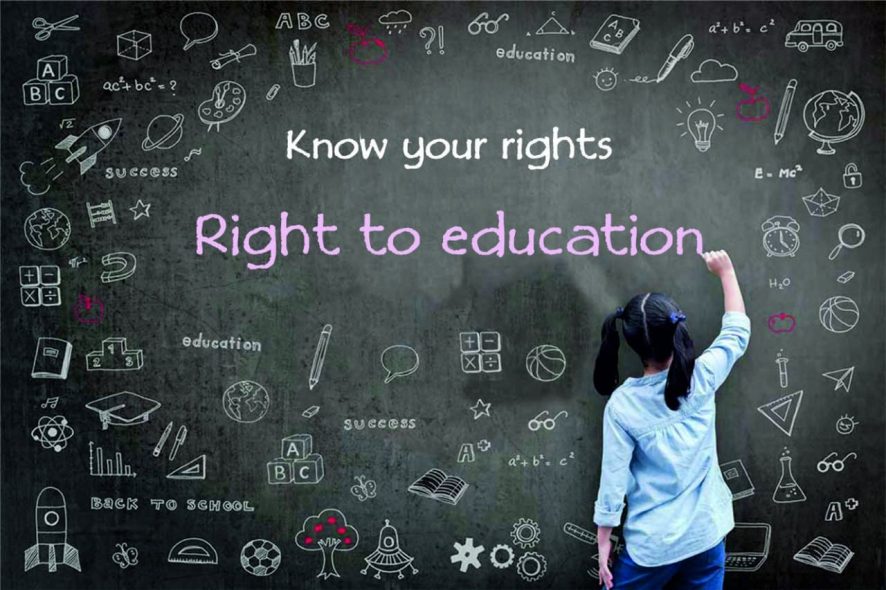Under the Constitution
This right guarantees free and compulsory education for children between the age of 6 to 14 years in India under Article 21A of the Constitution of India.
- ‘Free education’ means that no child, other than a child who has been admitted by his or her parents to a school, shall be asked to pay any kind of fee/charges/expenses which may prevent him or her from pursuing and completing elementary education.
- ‘Compulsory education’ casts an obligation on the appropriate Government and local authorities to provide and ensure admission, attendance and completion of elementary education by all children in the 6-14 age groups.
Under the Right to Education Act, 2009
Focus:
- Providing elementary education to a child (6-14 years) who does not/could not go to school. Such child to be admitted in age appropriate class and has the right to receive special training.
- Seeks to provide children right to seek transfer from a government or govt. aided school to another such school in order to complete elementary education. Such child also has right to immediately seek a transfer certificate (TC).
- Mandates non-minority private unaided schools to reserve at least 25% of their entry level seats for children belonging disadvantaged sections to create a more integrated and inclusive schooling system.
- Mandates the appropriate government and local authorities to provide for children’s access to elementary schools within the defined area or limits of the neighbourhood.
- Lays down the responsibilities of the State and Central government for carrying out provisions of the act.
- Constitution of a School Management Committee (SMC). The role of this committee to manage, monitor and support a school in its functions.
- Indicates that within 3 years from the date of commencement of the act, the appropriate government and local authority shall insure that the Pupil Teacher Ratio (PTR) is maintained in each school.
Ensures:
- Compulsory and free education for all.
- Special provision for special classes.
- Minimum standards.
- Admission for all.
- Quality and quantity of teaching.
- All-round development.
- By the people, for the children.
Objectives:
- Ensure that every child below the age of 14 gets free and compulsory education.
- Curb the problem of illiteracy.
Ensure personal growth and in turn growth of the country.
This Article is a part of the ‘Know Your Rights’ series by Centre for Clinical Legal Education, Maharashtra National Law University, Mumbai







Nice Article! Shiv Nadar Foundation is also working on Right To Education In India.
great guide on Right to education